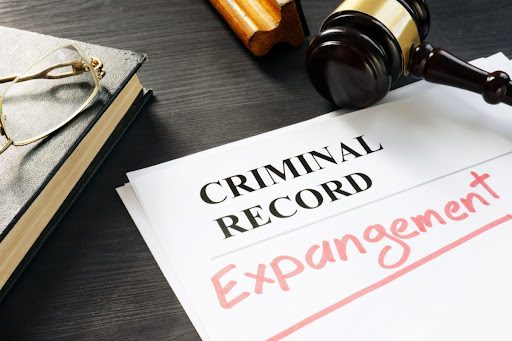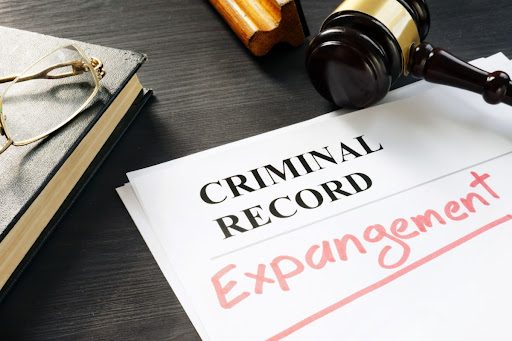
A criminal record can significantly hinder your prospects, affecting everything from employment opportunities to housing applications. Fortunately, for residents of New Jersey, there’s a legal process called expungement that can help clear your criminal record. Here, the team at Shugar Law Office will provide a comprehensive guide on how to expunge a criminal record in New Jersey.
Understanding the Expungement Process
Before diving into the specifics, it’s crucial to understand what expungement is and why it’s essential.
What is Expungement?
Expungement is the process by which a conviction is effectively ‘erased’ from a person’s criminal record for most purposes. After the expungement process, an expunged criminal record is not disclosed during most background checks, making it as if the criminal record never existed in the first place.
Importance of Expungement
Having a clean record can drastically improve a person’s life, opening up opportunities for employment, housing, and more. A criminal conviction, especially a felony conviction, can create significant roadblocks to these opportunities. Expungement offers a fresh start, a chance to move forward without the weight of past mistakes.
Eligibility for Expungement in New Jersey
New Jersey law stipulates specific criteria for expungement eligibility. Let’s break down the eligibility for different types of offenses.
Criteria for Felony Convictions
In New Jersey, many felonies, also known as indictable offenses, are eligible for expungement. However, certain crimes, such as murder, rape, arson, and child pornography, are not eligible due to their severity. The waiting period to expunge a felony conviction is generally six years from the date of your conviction, completion of probation, or release from jail, whichever is later.
Criteria for Disorderly Persons Offenses
Disorderly persons offenses and petty disorderly persons offenses in New Jersey are equivalent to misdemeanors in other states. These crimes, which include offenses like simple assault or shoplifting, have a five-year waiting period for expungement eligibility.
Criteria for Juvenile Offenses
Juvenile offenses may also be expunged in New Jersey. The waiting period for expungement is five years from the date of the last disposition or release from custody or supervision. It’s important to note, however, that some serious juvenile offenses, akin to adult violent crimes, may not be expunged.
Steps to Expunge a Criminal Record
The process of expungement involves a few key steps that must be carefully followed.
Identifying Eligible Records
Before starting the expungement process, you need to identify which records are eligible.
Felony Records
As mentioned earlier, many felonies are eligible for expungement in New Jersey. However, the expungement process varies depending on the nature of the felony and the number of convictions a person has.
Disorderly Persons Offense Records
Records of disorderly persons offenses can also be expunged, often with fewer restrictions than felonies. However, keep in mind that having multiple disorderly persons offenses might affect your eligibility.
Juvenile Records
In many cases, juvenile records are treated similarly to adult records when it comes to expungement. However, certain severe juvenile offenses may be ineligible.
Filing the Expungement Request
After identifying the eligible records, the next step is filing the expungement request.
Preparing the Petition
The petition for expungement includes completing and assembling several forms and supporting documents. These documents generally include information about the arrest, the crime committed, the court proceedings, and the outcome.
Filing the Petition
After the petition is prepared, it must be filed with the court. In New Jersey, the expungement petition is filed in the Superior Court in the county where the arrest or prosecution took place. The court then reviews the petition, and if approved, issues an expungement order.
What Happens After the Expungement Process?
So, what happens after your record has been expunged?
Background Checks and Public Records
Expungement greatly affects how your past is revealed in background checks and public records.
Effect on Criminal Background Check
Once your record is expunged, it generally won’t appear in most background checks. This can significantly ease the process of applying for jobs or housing, where a criminal background check is often a part of the application process.
Impact on Public Records
Expunged records are also removed from public records databases. This means that when a public record search is conducted, your expunged criminal records will not appear.
Contact Shugar Law Office Today for Comprehensive and Compassionate Legal Services
Getting a criminal record expunged in New Jersey is a process that requires careful navigation. By understanding the eligibility requirements and process, and with the help of a proficient attorney, you can work towards getting a clean slate and opening up new opportunities.
The Shugar Law Office is here to help you through every step of this process, providing the guidance and expertise you need to effectively expunge your criminal record. We also provide a multitude of other legal services, such as representing clients who are facing DWI charges and are an experienced criminal defense attorney in New Jersey. Contact our team today to schedule your consultation.
FAQs
What is the difference between a felony and a disorderly persons offense in New Jersey?
A felony, known as an indictable offense in New Jersey, is a more serious crime than a disorderly persons offense. While felonies include crimes such as theft, assault, and drug offenses, disorderly persons offenses are lesser offenses like petty theft, simple assault, and disorderly conduct.
Can all felonies be expunged in New Jersey?
No, not all felonies can be expunged. Certain serious crimes such as murder, rape, arson, and child pornography are not eligible for expungement.
What is the waiting period for expunging a felony in New Jersey?
The waiting period to expunge a felony conviction in New Jersey is typically six years from the date of your conviction, completion of probation, or release from jail, whichever comes later.
Does expungement remove my record from public access?
Yes, once a record has been expunged, it is removed from public records. This means it should not appear in most background checks or public records searches.
Can I apply for expungement on my own, or do I need an attorney?
While it is possible to apply for expungement on your own, the process can be complicated. It is generally recommended to seek the assistance of an attorney who is familiar with New Jersey expungement laws to ensure the process is completed accurately and efficiently.


